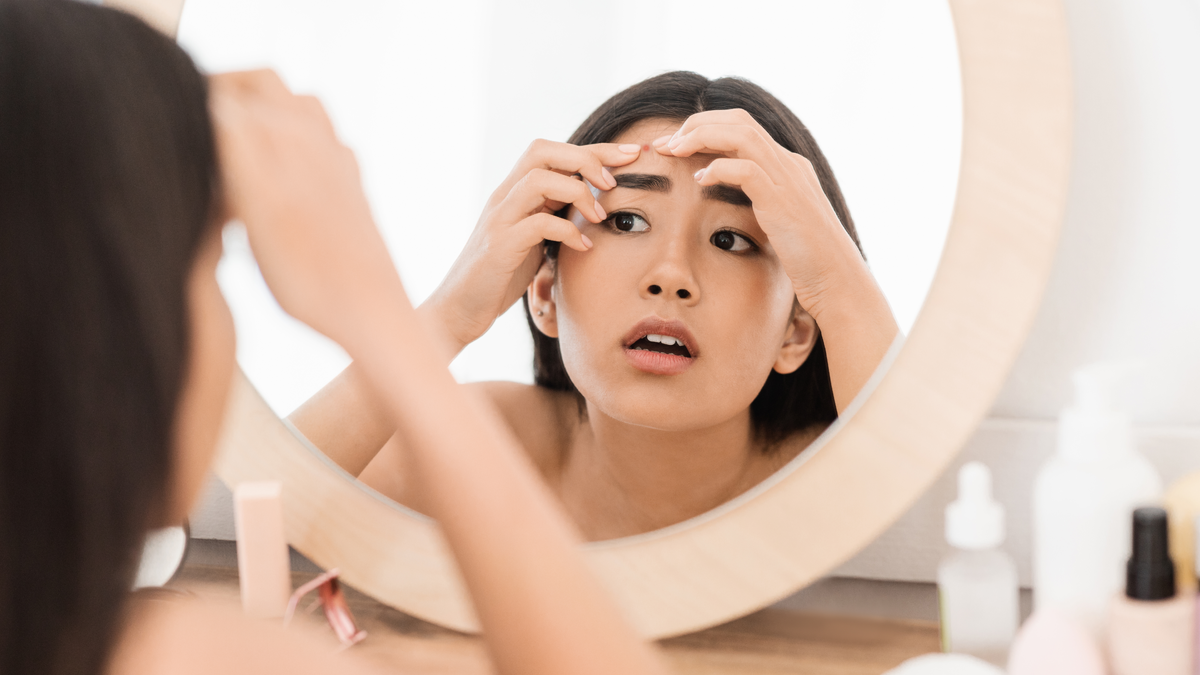
The skin is the body’s largest organ, so even a minor breakout or flare-up can be indicative of other issues or imbalances within your body. That’s why it’s so important to be in tune with your body, so you know what is normal for your skin and what isn’t. It’s even more important to know when to reach out to a dermatologist when something isn’t quite right.
If you’ve ever experienced skin issues – severe acne, eczema, psoriasis, or rosacea – then you know how uncomfortable or painful these outbreaks can be. You also know how easily they can worsen and even spread if left untreated.
For those who haven’t had these experiences, we want you to be aware of the signs so that you can seek professional treatment as early as possible if they ever happen to you.
We spoke with a few people with lived experience for whom a quick call or visit to the dermatologist was game-changing. Their stories offer insight about changes to look out for in your skin and when to see a dermatologist for inflamed or problematic areas.
What Should You Look Out For?
Knowing the signs for when you should seek out a dermatologist are half the battle in combating skin issues. Things like skin discoloration or darkening of the skin, rashes, hives or bumps, or flaking of the scalp can all be signs that you may potentially need medical attention.
Skin Discoloration
When Nicole* first noticed her skin darkening in the center of her chest, she dismissed it as normal discoloration. It wasn’t until a visiting friend saw it and recognized it as a fungal infection she’d seen before, that Nicole reached out to her dermatologist. She was ultimately prescribed an anti-fungal cream and her skin began to clear up immediately after the first application.
It’s easy to dismiss darkening or hyperpigmentation as a mundane issue, especially because it’s such a common occurrence on deeper skin tones. But, it’s worth a quick call to the dermatologist, just to be safe.
Rashes
Rashes are probably one of the most easily recognizable types of flare-ups on the skin. They can be indicative of an allergic reaction to something internally or externally in your environment, or even hormonal
Michelle* was 29 when she first started noticing red itchy patches all over her skin. Because she had a history of allergic reactions, she called her primary care physician right away, who advised her to take an over-the-counter allergy medicine. Months later, when she was still having issues, Michelle turned to a dermatologist who was unable to offer her an explanation for the once red patches that were now darkening, becoming painful, and beginning to cover her entire body in mirroring places on the left and right sides–including on both eyelids.
After over a year of doctor’s visits, Michelle was finally diagnosed with adult-onset of atopic dermatitis, or eczema, by a dermatology specialist – who also happened to be Black.
Because common skin issues tend to present differently on darker skin than on white skin, this normally easily diagnosable condition was missed and went untreated to the point that even putting on moisturizer had become uncomfortable for Michelle.
The lesson here? Call your doctor when you know something is wrong, and then keep advocating for yourself, until you’re able to see the right doctor to help with your issue.
Hives or Bumps
When Fred* and his wife first noticed the hives on their daughter’s skin, they were confused. The little itchy bumps presented like mosquito bites, but they knew she’d only been bitten once.
A quick call to their pediatric dermatologist revealed she was allergic to mosquito bites and the hive reaction mimicked the initial bite.
The bumps were easily treatable with over-the-counter meds. More importantly, calling their dermatologist helped these parents have peace of mind and know what to look out for going forward.
Flaky Skin
Ayanna* was mildly annoyed when her skin started to flake off her scalp in large patches. It soon got much worse with thick, moist scales (similar cradle cap) that eventually extended to her hairline where they became visible. That’s when she decided to see a dermatologist.
She was eventually diagnosed with seborrheic dermatitis, a fungal condition that causes scaly patches on the scalp, as well as oily areas of the skin. She’s now able to manage this chronic condition with the help of her dermatologist.
There are not always easy solutions to tackling skin issues, but reaching out to your dermatologist to be seen can help you address them and get your skin back in balance more quickly. Even if you have been previously diagnosed with a chronic skin condition, it’s important to pay close attention to when your known issues appear or behave differently.
Though any experienced doctor may be able to help, we recommend finding one with expertise in dealing with melanated skin. Not sure where to start? Get referrals from friends and family and, above all else, be sure to advocate for yourself or your loved ones if you are experiencing challenges in getting diagnosed.
*All names have been changed to protect people’s identities.



